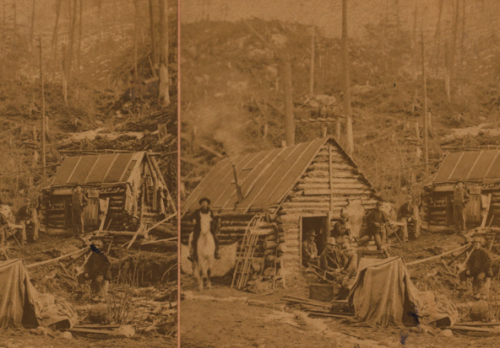Reading Angle of Repose While Moving Back East: The Sequel
Was reading Angle of Repose when I was in Pittsburgh a few weeks ago (the house-hunting trip) and realized where/when I’d last read it: when I was moving to NYC back in 2005. I remember sitting in the airport in Cincinnati (where I was making a connection on Delta) reading it and thinking it was particularly odd to be getting so wrapped up in The West while abandoning it for the most East Coast of east coast cities.
It also struck me as probably a really bad way to begin the NYC adventure — by longing for the wild, open spaces of the west.
There’s a lot that’s different this time around, though, in particular:
- Pittsburgh is not New York City. You can drive in Pittsburgh. There are grocery stores with parking lots. Stuff is CHEAP. I’m going to be living in a house with a yard and a garage. I’ll be working with a group of people and I’ve already met some that are cool while at the same time not manic-depressive.
- Pittsburgh is sort-of the West. Definitely through the Angle of Repose lens Pittsburgh would have been considered more like the wilderness that it would have been like the civilization of New York. And it’s sort of a frontier town anyway. Once you get out of downtown and Oakland, Pittsburgh starts looking and feeling like the capital of Appalachia, more like a part of West Virginia than part of the same state that includes Philadelphia.
- The west isn’t The West. Maybe there are parts of Montana and Nevada that shouldn’t be painted with this gloss, but the modern-day west has nothing to do with the frontiers and taming-the-wilderness values and lifestyle of Angle of Repose. That’s one of the things the road trip taught me — the romantic West is pretty dead. In fact, it seemed more controlled and less “rugged individualist” than a lot of other parts of the country. Wyoming had the most offensive, threatening road signs in the country (e.g., “if you don’t wear your seatbelt, we’ll find you and it will cost you”-type messages) and most of the west was similar. Granted, I tend to perceive the world almost exclusively through a windshield, which might not always be an accurate reflection of reality, but still — driving in Michigan, for example, felt considerably more free. And after you’ve been on the trail to Half Dome for an hour and a half, you realize that the freedom and solitude and therefore to a large extent the bigness of the western wilderness is likewise little more than a matter of legend.
So basically, I think Pittsburgh will be much better than New York. And I don’t think it fits my ideal place to live, but after that road trip, I don’t know that a close approximation of my ideal exists anyway. Oh well.
And I still think that the book ends too quickly and/or that the author should have spent a little more time on the framing story to better justify its existence. And it’s still one of my top five books of all time.
bkd
(A photo to keep the front page concept from breaking:
)

